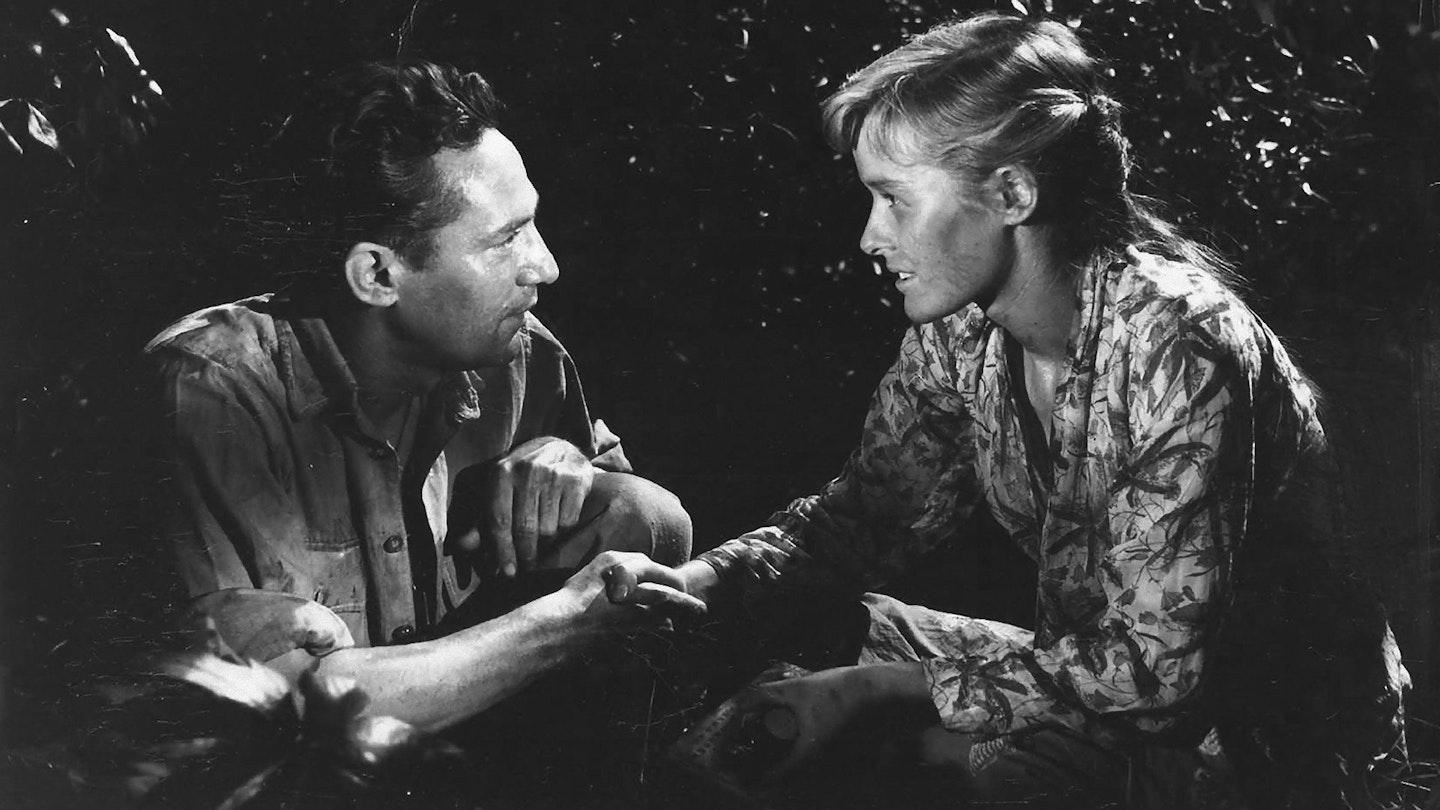Based on the first half of Nevil Shute’s novel, this 1956 film won BAFTAs for its portrayal of Allied prisoners-of-war in Japanese-occupied Malaysia. For the time, it was farely uncompromising in its revelations of the brutal and sadistic treatment that POW's were afforded at the hands of their Japanese captors. Whilst staying within the contemporary boundaries of cinema screen tastes for visual violence, it shows women and children suffering torture and deprivation in uncomfortable and unfamilar surroundings.
Of the strictly non-Hollywood cast, Virginia McKenna in particular shines, managing to subtly portray an inner strength in the middle of all the hopelessness and degradation. Whilst British critics at the time lauded the film's attitude and ambition, fans of Shute's book have since bemoaned a certain two-dimensionality and lack of emotional core, as well as the fact that the film narrative stops half-way through the book. However, adaptations at this time occasionally suffered from a mysterious page to screen tonal flattening that did a disservice to the often superb individual elements. The film can tend to drag in places, but there are definitely certain disturbing set pieces which will resonate long after final reel.
